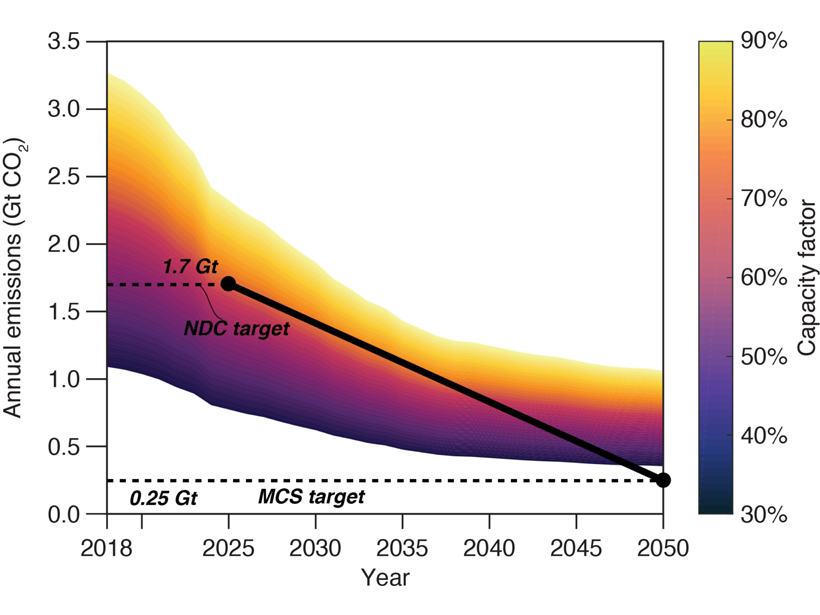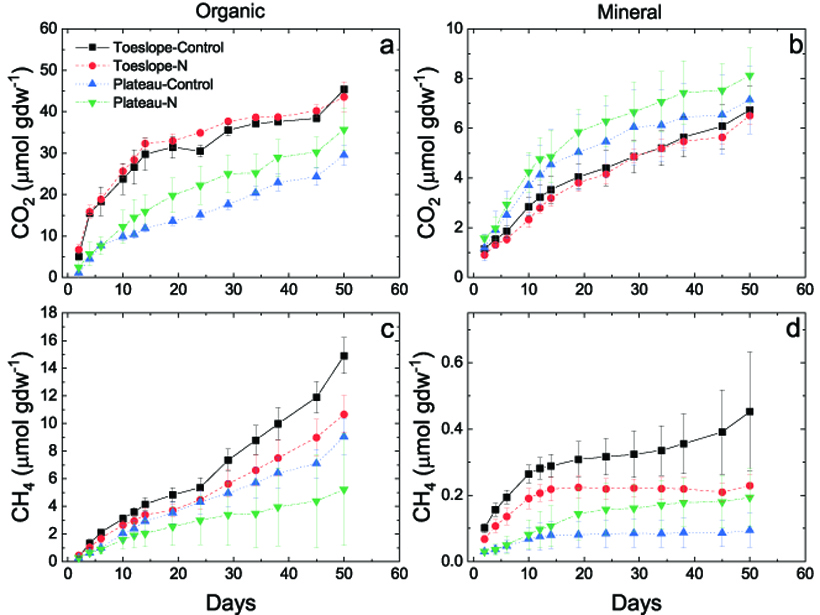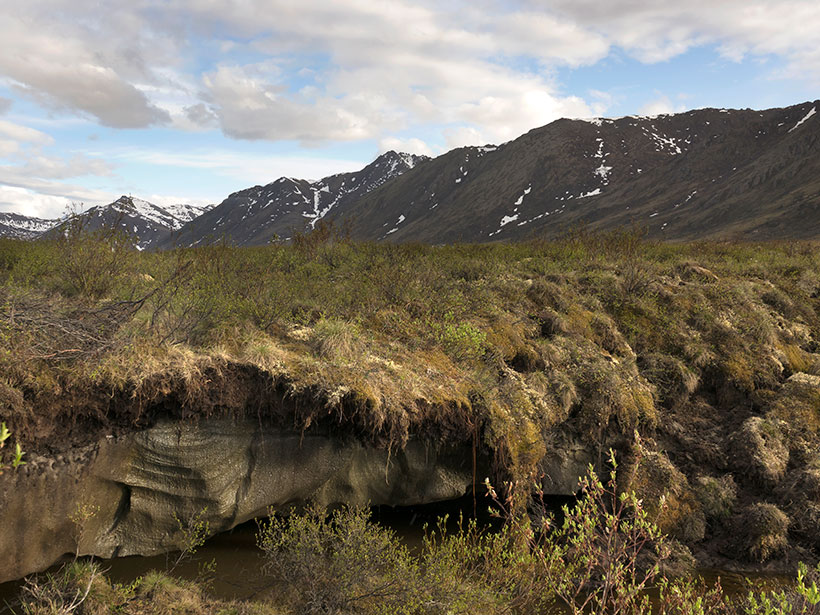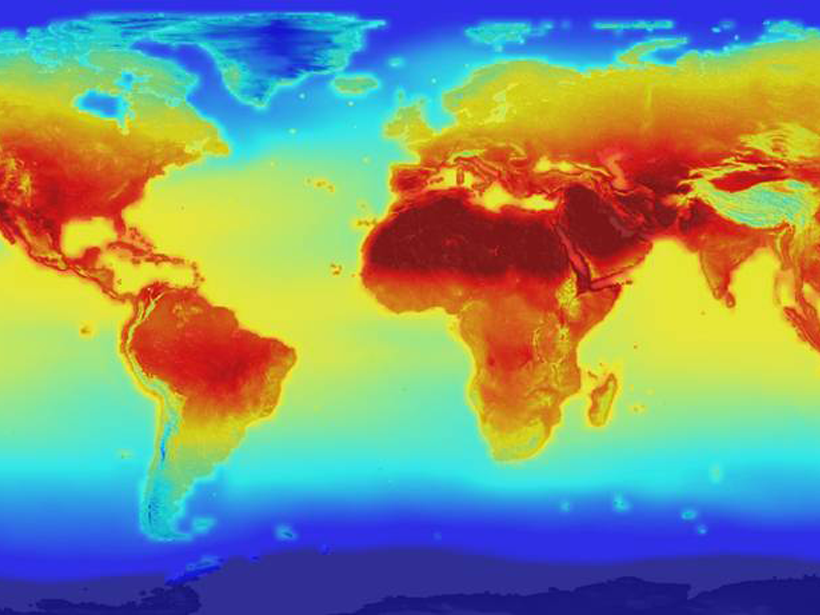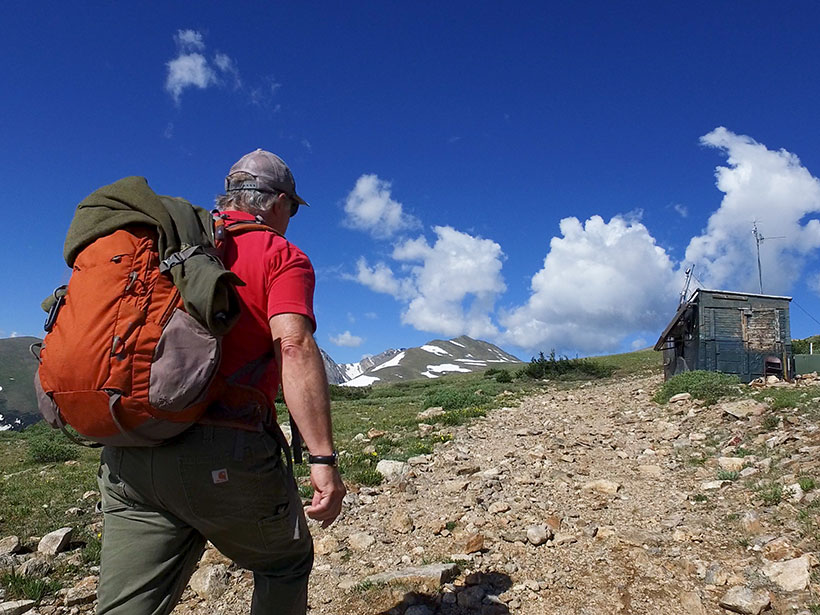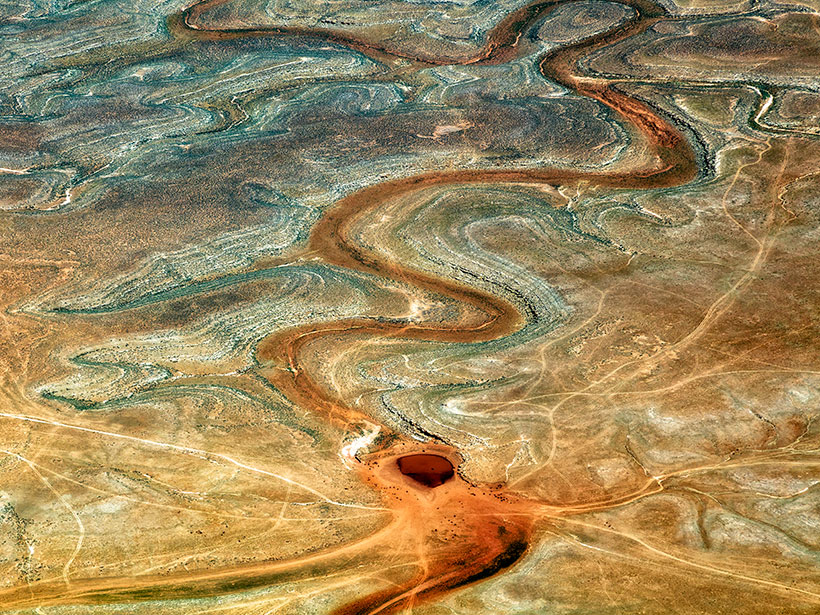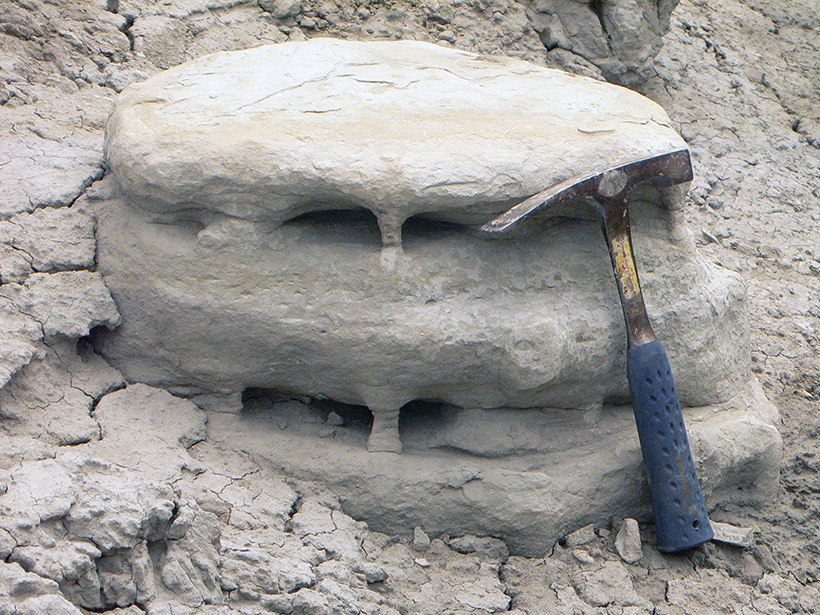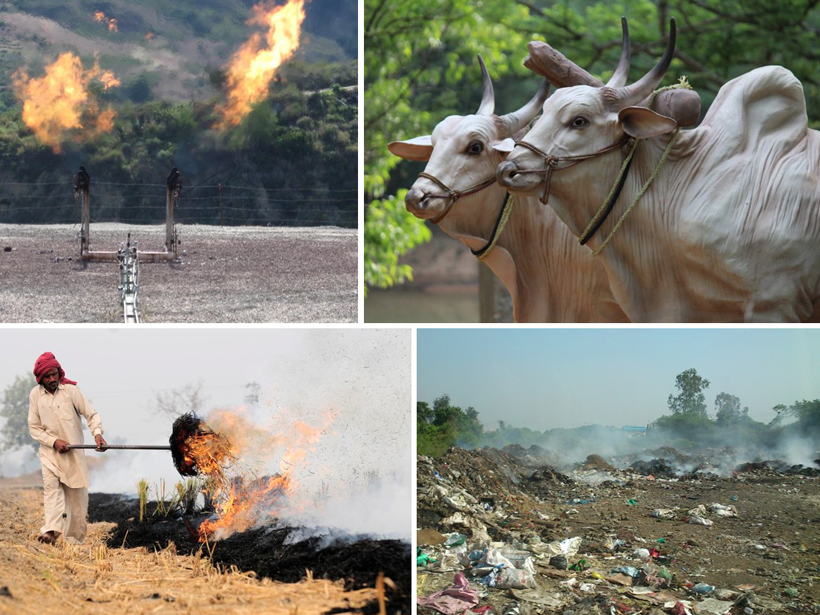Without a significant reduction in usage, committed emissions from coal and gas plants in the United States are already incompatible with the country’s pledges under the Paris climate agreement.
carbon emissions
Downhill from Here: Landscape Positions and Greenhouse Emissions
In comparing soils from two tundra wetland landscape positions, landscape position is found to matter, and toeslopes are associated with higher greenhouse gas production.
Experiments Reveal How Permafrost Carbon Becomes Carbon Dioxide
Field samples from Alaska show how sunlight and iron convert permafrost carbon to carbon dioxide. Climate models ignore this process.
Will COVID’s Cleaner Skies Muddy Climate Models?
Reduced greenhouse gas emissions for a year or two won’t slow down climate change, but they may throw off scientists’ ability to model short-term phenomena.
Radioactive Bookkeeping of Carbon Emissions
A new sampling method uses carbon-14 to single out which carbon dioxide molecules in the atmosphere derive from fossil fuels. The method could help track emissions goals for climate mitigation.
Frequently Dry Waterways Still Contribute to Carbon Emissions
A new international collaboration found that dry inland waters—no matter where they were located—contributed significant global carbon dioxide emissions.
Education May Increase Emissions but Mitigate Human Cost of Climate Change
Increasing education in the developing world could lead to a modest increase in carbon emissions due to economic growth, but education could also reduce the negative impact of climate change on vulnerable populations.
Oceanic Changes Correlate with Methane Seepage
Changes in sea level and organic carbon burial may have affected seafloor methane seepage over the past 150 million years.
Tracking Tropospheric Ozone Since 1979
Stratospheric ozone depletion between 1979 and 2010 resulted in a slight decrease of ozone in the troposphere during that period despite increased ozone production from anthropogenic emissions.
Methane’s Rising: What Can We Do to Bring It Down?
Reducing methane emissions is critical for addressing climate warming, but which are the easiest and most cost-effective ways to do this?

